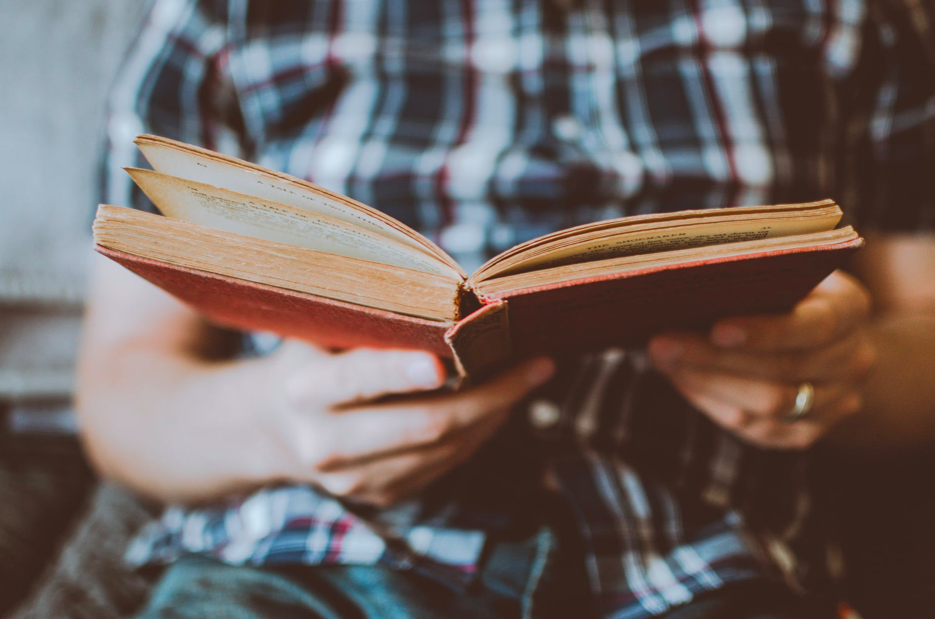
Dutch books, fiction, literature, whatever you want to call it, there is such thing as a Dutch literary soul. But what can we learn about Dutch identity from the pages written by the people of this little strip of land?
Does Jip or Janneke provide sweet relief when a native is nursing a broken heart? What do the Dutch read for pleasure — the korting (filled pages of a local supermarket brochure)? They are known for being practical, but is there a catalogue of hopelessly romantic Dutch writers to call upon when necessary?
It came to my attention that, despite a strong love of literature, I know very little about Dutch fiction. Having lived in the UK and Italy — two countries that are aware and incredibly proud of their literary heritages — I am used to literature being present in the very fabric of society. Perhaps it is a mere (and unfortunate) coincidence, but I haven’t felt that reverence here.
I’ve decided it’s time to begin a literary journey to better understand the Netherlands, a journey that I would like to share with you. Moreover, if you are a book aficionado and have already started your own venture into Dutch literature, then your thoughts and suggestions would be greatly appreciated.
“Books are humanity in print”
What can we really learn about the Dutch from works of fiction?
Barbara W. Tuchman once wrote that “books are humanity in print”, and this is a concept that has inspired my current approach to understand Dutch identity. No matter how far-fetched the storyline, human experience is can be found within the pages of Dutch literature.
If you want to indulge your inner nerd, then know that this is debated within academic literary circles through an offshoot of Reflection Theory. It is here that the extent of literature’s influence, or mirroring of any given society, is assessed. For example, Albrecht writes:
“At one time or another literature has been thought to reflect economics, family relationships, climate and landscapes, attitudes, morals, races, social classes, political events, wars, religion, and many other more detailed aspects of environment and social life.’’
Once these reflections have been identified, we can go a step further is to ask: what should we make of these Dutch “National Treasures”? What printed humanity do they hold closest to their hearts, and are most proud of? Better still: what do their choices say about them?
Mind your language
There is, however, an elephant in the room: the Dutch language. Many classics are written in an antiquated version of Dutch. Joost Zwagerman, in an introduction to a collection of translated Dutch short stories, lamented that:
“Many great works of seventeenth-, eighteenth- or nineteenth-century Dutch literature have to be translated into modern Dutch to make them accessible to the average reader, to whom eighteenth-century Dutch — and I do not exaggerate — seems almost like a foreign tongue… consequently, even cultured Dutch readers generally pay mere lip service to their country’s literary canon.”
As for non-Dutch speakers, the situation is changing somewhat through the hard work and dedication of the Dutch Foundation of Literature (Nederlands letterenfonds) who are supported by the Dutch Ministry of Education, Culture and Science.
Together they are promoting Dutch literature through increased availability and quality of translations, and a recent paper suggests that the number of translated Dutch titles is increasing, though translation still remains difficult and very restricted.

It is a sad reality that unless you are fluent in Dutch, your access to native literature is restricted and dictated by the decisions of others: most notably those in charge of grants. This runs the risk of reflecting a more commercial rather than a creative incentive.
Though he wrote it in 1899, you can see why Georg Brandes once described translation as a “lamentable necessity” for authors working with smaller languages.
Gender in the Dutch literary world
It seems to be even more of a hurdle, surprise surprise, for female Dutch writers: between 1998 and 2018, only 36% of translated titles were by female authors.
In 2014, just 20% of translated fiction was written by female Dutch writers, rising to 37% in 2018. An increase, yes, but still a huge gender imbalance, and most likely not the only issue of representation.
A call for suggestions
Despite the aforementioned obstacles, my initial research indicates there is a treasure trove of literature that can be found in the Netherlands, such as:
De Grote Drie (Willem Frederik Hermans, Gerard Reve and Harry Mulisch); Jan Wolkers, Hella Haase; A.C. Baantjer are all names to start with, while this year Marieke Lucas Rijneveld became the first Dutch winner of the International Booker Prize with a highly acclaimed (and translated) “The Discomfort of Evening”.
I do hope this article has inspired you to dig a little deeper into Dutch literature and to begin your own journey. If you have already started then please share it. Now if you don’t mind, I’m going to get back to my book.
Have you enjoyed any Dutch Literary treasures lately? Let us know in the comments below!
Feature Image: Abhi Sharma/Wikimedia Commons/CC2.0
Editor’s Note: This article was originally published in October 2020, and was fully updated in February 2021 or your reading pleasure.
